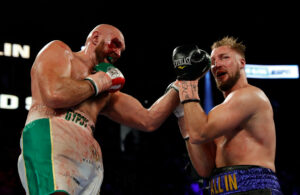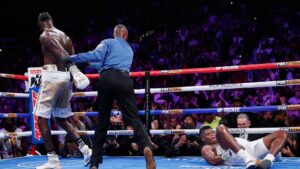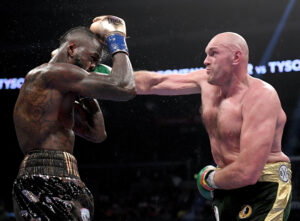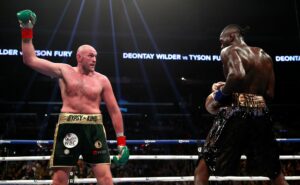There are several reasons why the rematch between Deontay Wilder and Tyson Fury is a significantly more intriguing fight than the first one.
For one thing, in the wake of Anthony Joshua’s shock loss to Andy Ruiz in June, general consensus dictates that Wilder against Fury will determine the number one heavyweight in the world; something that is further vindicated by the prestigious Ring Magazine belt being on the line.
Fury is now fighting with the same degree of frequency as he did prior to 2015, registering victories over Tom Schwarz and Otto Wallin. Indeed, Fury’s well-documented layoff was a central talking point in the lead-up to their December 2018 showdown but now the Gypsy King has now proclaimed full “match-fitness” ahead of the rematch; fully primed to produce the performance of his career.

Meanwhile, Wilder has been in typically powerful form, producing successive trademark one-punch knockout victories over Dominic Breazeale and crafty Cuban southpaw Luis Ortiz in what was a hugely successful year for the WBC champion.
The nature of Wilder’s wins speaks to his destructive potential and will naturally imbue the Tuscaloosa native with an unbridled confidence in his own ability to dramatically change his fortunes in a fight by detonating one fateful punch.

Although Fury’s inexplicable twelve-round recovery has rightfully been portrayed as one of the defining moments of heavyweight boxing in recent times, Wilder is partial to stressing the simple point that the human skull isn’t designed to take punches and believes he is more than capable of effectively nailing the slippery Mancunian to the canvas.
Fury and his fans are adamant that the lineal champion’s size, strength, stubborness, supreme physical conditioning and overall ring smarts present too much of a difficult challenge for anyone in the division, not just Wilder, to overcome.

It remains to be seen whether the deep gash Fury sustained in his hard-fought unanimous decision September triumph over Otto Wallin will possibly resurface in this affair.
Certain commentators are also suggesting that Fury’s stellar showing in their first fight – consistently making Wilder miss and circling away from danger – represented a scenario of not fixing what isn’t already broke. Therefore, Fury’s decision to leave his longtime confidant Ben Davison and join forces the Kronk’s Sugar Hill Steward – seemingly in an effort to hone his punching power and physical strength – has raised more than a few eyebrows.
It’s important to note that this is, after all, a heavyweight fight, and Fury’s patent size advantage suggests that he is certainly capable of hurting Wilder, despite the Alabaman’s impressive punch resistance.

Gerald Washington – with his dogged, deliberate style – will also be facing hevay-handed southpaw and former IBF titlist Charles Martin in what should represent a decent appetiser to the main event, but people are naturally more interested to see what approach Fury and Wilder adopt and what adjustments they make; especially when considering the fact that the twelve-round distance last time culminated in a verdict that was not outwardly favourable to either fighter.
It is reasonable to expect, that Fury will look comfortable and assured throughout the early proceedings as he settles into something of a rhythm with his graceful movement and assured defensive tricks. Fans of the Bronze Bomber, on the other hand, will be hopeful that their man will cut a more measured and patient figure this time around – letting Fury lead and luring him into a false sense of security, as opposed to loading up recklessly from the outset – and be in a position to unleash one of his devastating fight-ending flurries when the time is right.
Article by: Navi Singh
Follow Navi on Twitter at: @DarkMan________